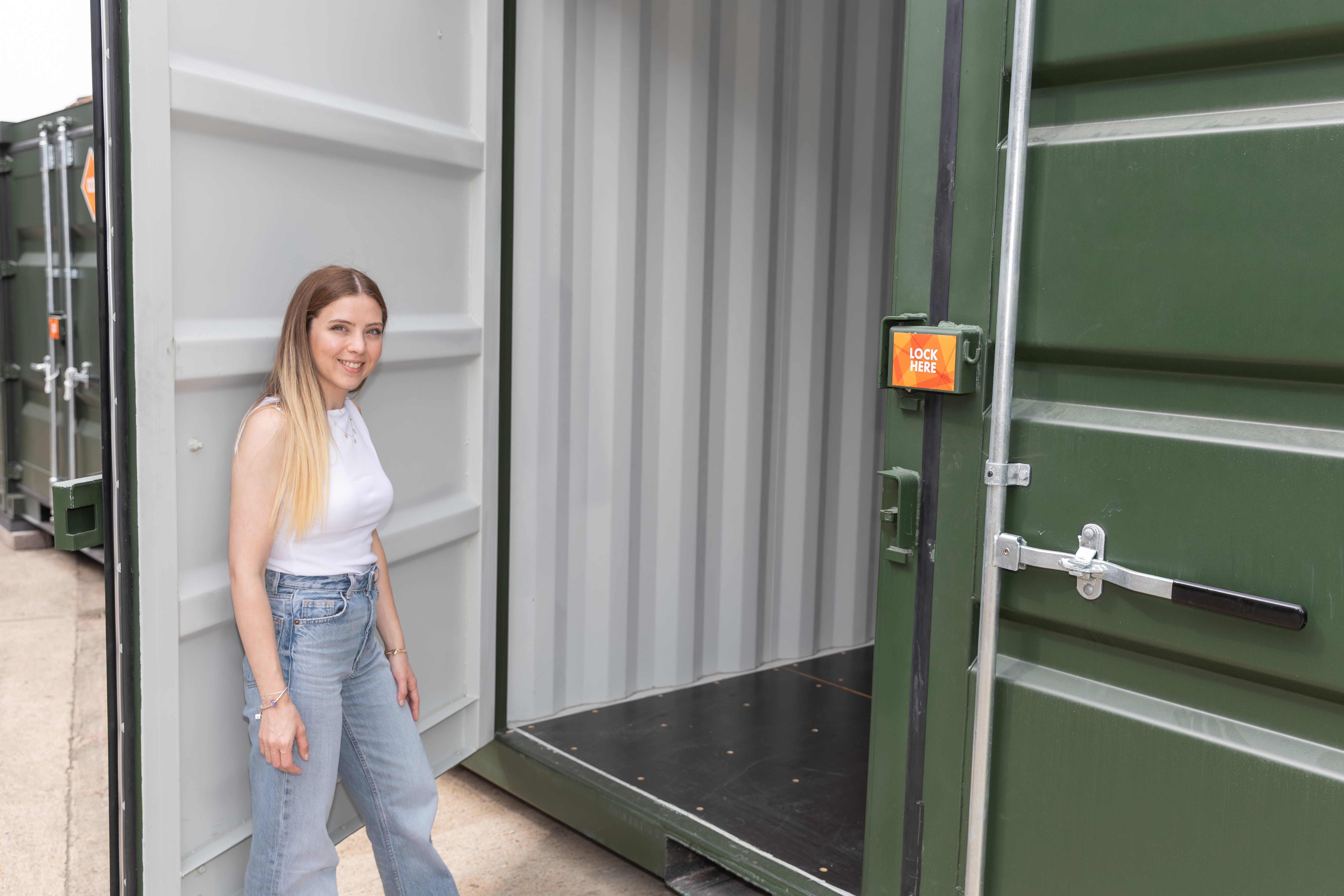Safely Storing and Transporting Ceremonial Headwear for the Coronation
With a focus on finery imminent, easyStorage decided to take a look at the worlds of crowns, coronets, tiaras and fascinators.
Crowns
A crown is a traditional head adornment (calling it a hat seems a bit of an understatement) worn by British monarchs as a symbol of their power and dignity. (Note that the customs and traditions surrounding who can customarily wear crowns vary outside of the UK.)
Royal crowns have been stored and displayed, since 1661, in the Tower of London, as part of the Crown Jewels, a collection of 23,578 highly-guarded gemstones, worth around £6 billion. Incidentally, the Honours of Scotland, on display in the Crown Room at Edinburgh Castle, are the oldest Crown Jewels in Britain, including the Honours’ crown made for James V, in 1540.
Any kind of costume headgear which imitates a monarch's crown, for example, made by children, used by actors or for fancy dress, is known as a ‘crown hat’. Religious crowns generally fall under the category ‘crown hat’, rather than ‘crown’. In reality, few people make the distinction unless for etiquette. (More than a few song lyrics would be rendered useless if we had to add ‘hat to the word crown!)
Back in London, meanwhile, three crowns, St Edward’s Crown, the Imperial State Crown and Queen Mary’s Crown, are missing from the Jewel House. No, it’s not a dastardly whodunnit. They’ve gone off in preparation for the Coronation Service on May 6.

Coronals
Coronals, otherwise known as nuptial crowns, are crowns worn by a bride in many cultures, and sometimes even by the groom.
(Eastern Orthodox marriage services even have a part known as the crowning, where the bride and groom are crowned king and queen of their household).
They are often provided by, and stored and protected by, churches, simply because of their value, but for others, they are kept as a special memento.
Coronets
A coronet is a small metal ring crown that completely encircles the head, decorated with ornaments, but not any precious or semi-precious stones – these upstart crowns must stay in their place. Most coronets do not have arches, where crowns do, except the coronet of the heir apparent which has a single arch with a globe and cross.
All members of the British royal family may wear coronets at coronations. How fancy these can be varied with the individual’s relationship with the person being crowned– a hugely political and sensitive selection, which historically may have resulted in the wearers’ heads and shoulders parting company. However, in principle, they’ll be made up of crosses, fleurs-de-lis, and strawberry leaves, according to status.
Fornon-royals, a coronet’s design reflects the owner’s rank: up until 1661, the coronets of earls, marquesses and dukes were engraved while those of viscounts were plain. However, in 1661 barons received the right to wear coronets, so theirs became the plain ones (with silver balls) and the viscounts stepped up the engraving.
In the UK, peers only ever wear a coronet on one occasion: you guessed it, a royal coronation, worn with coronation robes. Many people officially entitled to a coronet never actually have a real one made. They are simply a heraldry image on someone's coat of arms.) Silver-gilt circlets, they have an ermine band around the base, a crimson silk Genoa velvet lining and a gold tassel. But the word on the street (and in Tatler magazine) is that they are being asked to tone it down for the coronation. I hazard a guess that more than a few are heaving a sigh of relief!
Tiaras
Tiaras used to be worn as symbols of rank, status and style, but without the formality imposed on other royal headwear.
They don’t, however, escape tradition totally. Traditionally, tiaras were symbolic of love winning over innocence, so only a bride or married woman was meant to wear one at a wedding.
Whilst originally a status symbol, they are now available to meet just about any budget.
Fascinators
Fascinators have been a part of millinery fashion since the 18th/19th century and are purely ornamental head decorations. Since the 1990s, they commonly refer to decorative headwear. Worn as an alternative to a hat, purely ornamental decoration is attached to a band or clip and fixed in place in the wearer’s hair.
Keeping precious items safe
We’re hazarding a guess that the Palace doesn’t need us at easyStorage to tell them how to handle their jewels (although we’re always here should they need us!). If you own a crown, coronet or tiara of historical value, you will doubtless have its lined storage box and have appropriate storage arrangement in place. So we’ll focus here on tiaras and fascinators.
The most surprising piece of advice for many will be NOT to wear hairspray if at all avoidable – the sticky layer that it creates will dull and gems, stick any feathers and attract dust. Leaving your hair ‘dirty’ for a day is more likely to hold it well in place without damaging it. Similarly never submerge your headwear in water. It can cause tarnish, damage delicate details and discolour your headwear.
Clean according to provided instructions, take to a professional jeweller to clean or look carefully online for reliable sources of information regarding cleaning. Be certain that you have the right instructions for your own item’s materials –spraying vinegar, for example, may work to clean some materials but rot others.
Store your tiara or fascinator in a hanging cloth bag or in a box. A silica gel pack can help absorb any moisture.
If you are putting your headdress away, use a rigid box for protection. Ensuring that the headdress is clean and dry, make sure that there is plenty of tissue paper or appropriate cushioning to stop the headdress from banging the side of the box, especially where there are delicate decorations such as feathers or pearls. The same rules will apply if you are keeping a crown made by children. Even if it’s only made of card, it’s precious.
Mark the box clearly with ‘FRAGILE’ so that anyone handling it handles it with care. And don’t forget that if your jewels are valuable, make sure you insure them properly before storing them. (If you need any help on the storage front, you know where we are!)
And in the meantime, we hope you enjoy the coronation celebrations. We plan to!
.png)




.png)

.png)








